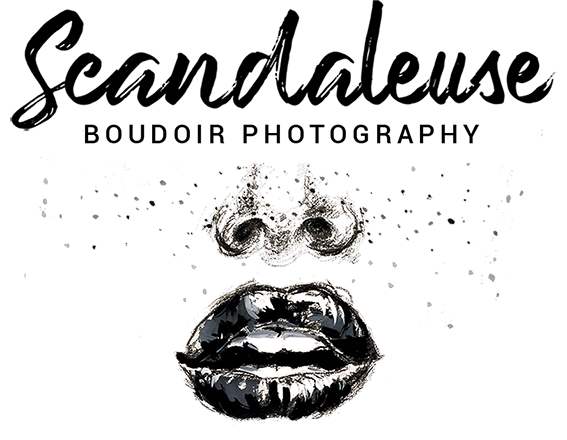Disclaimer: This blog is part of our Unstoppable project and gather all the information we could find from different sources about domestic abuse. We are not expert in this field, if you are seeking help make sure to contact the appropriate service provider: here is a list to find help across Canada.
Last month we shared with you the steps you can take to help someone who is, or could be, victim or domestic abuse. In today’s blog we will be talking about what you can do if you are the victime. Please don’t hesitate to share this blog with people who might need it.
To prevent and end domestic violence it is important to acknowledge and understand that victims never deserve, nor should be blamed for, the abuse they endure. Abusers are skilled at using power and control over their victims.
What is domestic abuse?
Domestic abuse, also known as “domestic violence” or “intimate partner violence”, is a pattern of behaviours used by one person to gain power and control over another person with whom they have or previously had an intimate relationship (people who are married, living together, or dating).
IT CAN IMPACT ANYONE, REGARDLESS OF GENDER, AGE, SEXUAL ORIENTATION, ETHNICITY, FAITH, EDUCATION, OR INCOME LEVEL.
Those abuse are not only physical, but also includes any sexual, emotional, economic or psychological actions or threats of actions that influence another person (such as behaviours that frighten, intimidate, terrorize, manipulate, hurt, humiliate, blame, injure, or wound someone).
Source: United Nations
If you want to understand more about domestic abuse, we highly recommend the mini serie called MAID. This movie showcases very well the struggles most people victime of emotional abuse are going through:
Recognize the signs
Since domestic abuse is about controlling someone’s mind and emotions before hurting their body, the signs are not always obvious. Victimes are often confused, scared, and not able to see their partner’s actions for what they really are:
Does your partner…
Constantly diminishes you?
Control your money?
Isolates you, cutting you off from friends and family?
Physically abuses you?
Forces you to have sex or do intimate things against your will?
Use intimidation or threats to gain compliance?
Use drugs or alcohol as an excuse for saying hurtful things or abusing you?
Blame you for how they feel or act?
Make you feel there is no way out of the relationship?
Do you...
Sometimes feel scared of how your partner may behave?
Constantly make excuses to other people for your partner’s behaviour?
Believe that you can help your partner change if only you changed something about yourself?
Try not to do anything that would cause conflict or make your partner angry?
Always do what your partner wants you to do instead of what you want?
Stay with your partner because you are afraid of what your partner would do if you broke up?
If any of those are happening to you, don’t feel ashamed or scared to ask for help. Abuses will not stop until until you make the courageous decision to sick help.
What to do if you are being abused?
First of all, know you are not alone, and this is absolutely not your fault!
CALL FOR HELP
Second, making the decision to get out if this situation can be hard and scary. The best way to get help is to start giving a call to the appropriate service provider:
- Canada: Domestic Violence Helpline at 1-800-563-0808. You can find more crisis hotlines for different provinces here.
- US: National Domestic Violence Hotline at 1-800-799-7233
Always call from a friend’s house, a family’s house, or anywhere else where you feel safe. If it is an emergency, call 911.
You can also reach out to people you trust in your circle. Remember, you are not alone!
HIDE YOUR INTERNET ACTIVITY
Internet is the perfect tool to find information that can help you make decisions about your personal situation and find help. However, closing your browser does not erase the record of your internet activities. If you are concerned that your partner may be monitoring you, you have to learn how to hide your Internet activities.
Learn how to delete cookies from your computer here, and learn more about digital privacy here.
HAVE AN EMERGENCY ESCAPE PLAN
Taking decision to leave can be very risky for the victims as they will have a greater risk of being killed by their abuser than if they decided to stay. Having an emergency safety plan set up, before leaving or before a crisis occurs, is a very important step.
- Hide a set of car keys, and pack a bag with extra clothes, important papers, money, medicines, and toiletries. You can keep it at a friend’s house or someone you trust.
- Have a safe place to go if you decide to leave. Here you can find different shelters within Canada if you cannot go to someone you trust.
- Have a prepared excuse to leave if you feel threatened.
- Have a code word so your kids, family, friends, or co-workers know you’re in danger.
- Have a list of emergency contacts, including trusted family or friends, local shelters, and domestic abuse hotline.
The “Signal For Help”
“Signal for Help” is a simple one-handed sign someone can use on a video call. It can help a person silently show they need help and want someone to check in with them in a safe way. You can find all of the info here!
Domestic abuse is still nowadays taboo and very commun.
It is important to learn how to help the victims. Or if you are yourself the victime, learn to gather all the tools necessary for you and your child’s safety. Not being afraid to talk about this subject is also another important step in the fight against domestic violence.
We all have a role to play! Juliette and I decided to organize an art exhibit to raise funds for the Canadian Women’s Foundation and Sistering, two charities helping people victim of domestic abuse. The grand opening night is happening this March 8th, downtown Toronto. All the donations collected will be equally divided between those two charities.






